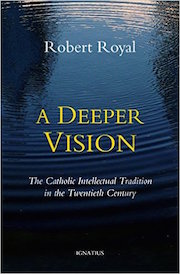One way to diagnose someone with a bad conscience is to look for a certain form of restlessness. If the conscience is God’s umpire within us, impartial, no respecter of what our desires may happen to be, we cannot simply make it go away.
It does not belong to us. We may try to drown out its voice by a lot of noise of our own, the chatter and babble of excuse-making and prevarication. We may plug up our ears or turn our attention elsewhere. These are the actions of people who know, deep down, that they are doing wrong, and who half wish that things were otherwise.
But when you commit yourself to the wrong by an irrevocable decision, when you do more than make excuses, when you raise up the wrong as right, what happens? You cannot abolish that umpire, and you cannot overturn the moral law. It is then that a peculiar restlessness sets in, which is more than unease: a determined drive, a goad, a fury, a spirit of vengeance against the conscience and against good itself.
Milton’s Satan experiences it as it drives him on to the new created world, in revenge “which like a devilish engine back recoils / Upon himself,” while his passions of horror and doubt “from the bottom stir / The hell within him.” He is, paradoxically, powerless to relent, powerless to cease from seeking power, even though he knows – and he admits it when no one is around to overhear – that while all the devils adore him on the throne of Hell, “the lower still I fall, only supreme / In misery.”
What are the telltales of that fury? Ghastly exaggeration, for one. Consider the days when the Clintons and their allies said that abortion should be “safe, legal, and rare.” That was a sign of uneasiness. For the obvious question was, “Why should it be rare?” We do not say of other morally indifferent things, such as having a wart removed or getting a haircut, that they should be rare.
That one adjective was tantamount to admitting there was something bad about taking the life of an unborn child. But what was bad about it? Here the Clintons had no coherent answer.
The position was unstable. To decide, finally, that abortion was a right, rather than something made unfortunately necessary by circumstances, the defenders had finally to insist that it was right in itself, even good, to be celebrated. They had to exaggerate. “I love abortion,” I have read in the self-description of someone on social media who is delighted that children are discovering “who they really are” by experimenting with sexual identities.
Chaos is another sign. When a crater collapses, there is yet some base of igneous rock to put a stop to it. Not so with a human being made in the image of God. We then encounter what my old colleague Rene Fortin, in his shrewd analysis of Shakespeare’s villains, called “negative transcendence,” as if, without God’s gracious and healing action, there may be collapse upon collapse, fall upon fall, spiraling into deeper and deeper states of incoherence and unbeing.

“I am in / So far in blood, that sin will pluck on sin,” says Richard III. Macbeth, nearing the end of his career in evil, hears the shriek of women in the castle, and is beneath appeal, beyond recall:
I have supped full with horrors.
Direness, familiar to my slaughterous thoughts,
Cannot once start me.
These wicked kings, however, do not preach to others that they should join them in ambition; after all, they want the crown, and that means that others should not have it. Satan is all for subordination and obedience when it is he whom the other fallen angels must obey, and he is not above keeping them in a state of fear.
But when the sin is, so to speak, more social in its nature, the sinner will want others to partake of it too; and when that fateful step is taken to declare that the sin is good, even holy, and when the conscience still speaks, and when not everybody in the world agrees to do as you do and to think as you think, you will be goaded on to the chaotic, to more radical and nonsensical declarations of the goodness of evil.
Such an infinite fall is not the logical playing-out of false premises. It is the psychological restlessness of committing to what is not. This we see in the progressive insanity of the Nazis, who went from personal acts of hatred and injustice to murder on a staggering scale.
We have seen it in the sexual revolution, with accelerating degeneracy in our time: not even children may be left in peace, but they must be exposed to adults playing out their fetishes, invited into “exploration,” their imaginations corrupted by a chaos of porn, and their bodies made vulnerable to the witch’s potion and the surgeon’s knife.
No rest for the wicked: we must go from being told that castration was the best of a set of bad options for Johnny, to celebrating it, and tagging as wicked anybody who dares to question it.
Is there no end in sight? No, none; that is the point. Nature has its wholesome limits. The supernatural does not, and the unnatural, that mimic of the supernatural, does not.
The supernatural does not, because good is ever expansive, and flourishes forth in ever higher and more intricate forms of beauty; the unnatural does not, at least in man and angel it does not, because no terminal of zero can ever be attained.
It is like C.S. Lewis’s vision of Hell in The Great Divorce, an ever-fissiparous gray city, apparently expanding so that its denizens can put more and more distance between themselves and everybody else, but actually taking up no more space than the tiniest hole in the ground.
Be forewarned. Stay awake.















